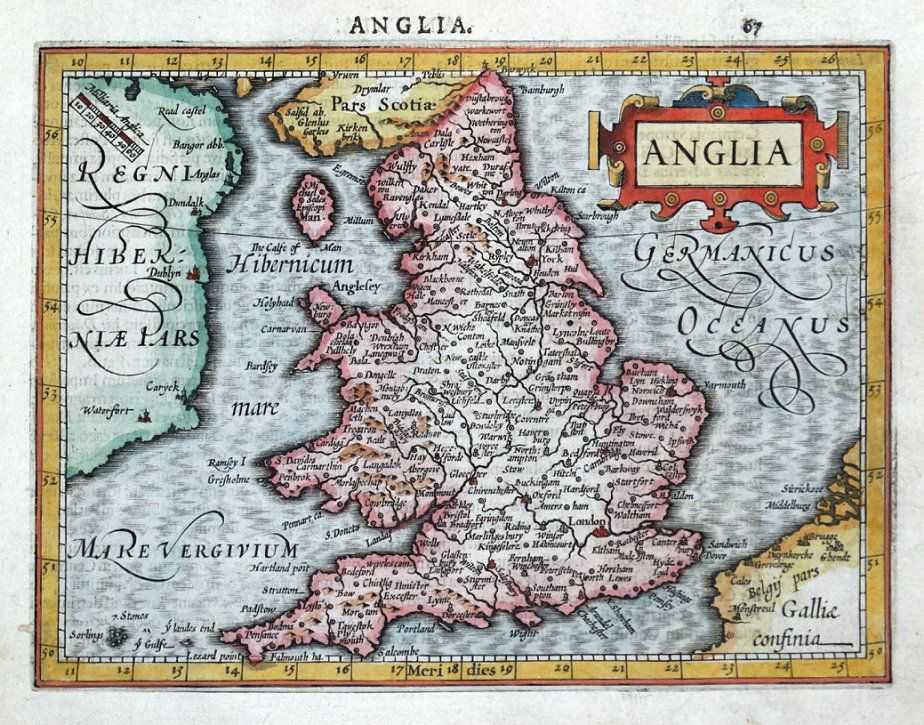MCU announces a series of lectures by renowned English professors from a long-standing MCU partner – University of Nottingham. On October 14–15, Associate Professor Jayne Carrol, Director of the Institute for Name-Studies, and Associate Professor John Baker, specialist in Name-Studies, will speak on the nature and evolution of the English place-names.
Lecture 1. The languages of place-names in England. Case study: the Scandinavian impact
October 14, 14.40
The first part of this lecture will introduce the topic of place-names in England. These evolved as descriptive labels distinguishing one location from another. They comprise a unique record of the different speech communities present in lowland Britain from prehistory to the modern period. The case study complementing this introduction focuses on the impact of Scandinavian-speaking incomers in the Viking Age (roughly ad800 to ad1100). The English and Scandinavian languages belong to the Germanic language family, and (in the early medieval period) shared many features of vocabulary and grammar. The impact upon the place-nomenclature—and indeed the spoken language(s)—of northern and eastern England was profound.
Lecture 2. Place-names and the English landscape. Case study: watery names in the medieval and modern periods
October 14, 16.20
Toponyms record perceptions of place. Not surprisingly, landscape features and resources loom very large in the place-name corpus, revealing an extraordinarily varied and specific topographical vocabulary. As many of the landscape features which gave rise to ancient names (mostly early medieval) are still visible, it is possible to understand precisely the significance of this vocabulary, and to see a pre-industrial England through the eyes of the namers. Water, the fundamental resource for any settlement, is of course a recurrent feature in topographical names. These reveal not only the presence of water, but also its behaviour, its value, and sometimes the risk it presents to life. There are striking parallels to be found between the watery landscape of the early medieval period and flood-prone 21st-century England. The second part of the lecture explores some of these parallels, and what we might learn from the toponomastic record.
Lecture 3. History in the landscape. Case study: Administering England through time
October 15, 14.40
English place-names have long held an important position in informing historical discourse, especially in the field of Anglo-Saxon studies. Since the foundation of the English Place-Name Society, scholars have used place-names to identify sites of potential historical or archaeological interest. In recent decades, place-name scholars have increasingly worked together with other disciplines to further our understanding of the early medieval landscape and how they reflect social and political changes. This lecture will introduce these approaches, focusing particularly on the ways in which place-names can shed light on Anglo-Saxon administrative practices.
Lecture 4. Cultural, geographical and linguistic identities.
October 15, 16.20
Case studies: cultures in contact (1) noting difference in Anglo-Scandinavian England; and (2) identities on the Anglo-Welsh border. Lowland Britain experienced a range of cultural and linguistic changes in the medieval period, associated with significant periods of migration. Issues of identity are therefore much discussed and sometimes controversial. This final lecture will look at identity in two principal ways. First it will examine the interplay of Welsh and English place-names in a border region (the county of Shropshire), and its implications for our understanding of the processes by which English became the dominant language of the West Midlands. Second, it will look at the toponymic evidence for different groups of people in Anglo-Saxon England, to explore ways in which identity is expressed and asserted in early and later medieval England.
Venue
5B Malyj Kazennyj pereulok, Moscow

